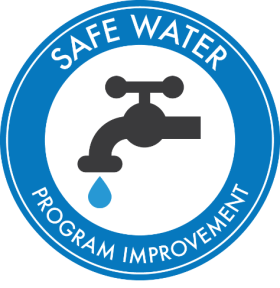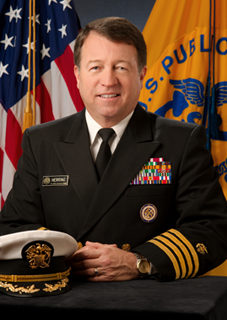
SWPI105: Policy Development: Policies and Plans
Course Description:
SWPI105: Policy Development: Policies and Plans is fifth in a nine-course learning series.
This course covers Essential Service 5 - Develop policies and plans that support individual and community environmental public health efforts. In this course, we will discuss the importance of developing a Community Environmental Health Improvement Plan (CEHIP) and how to use policies to address unregulated drinking water system (UDWS) issues through interventions, improved services, or actions. In addition, we will explore aspects of planning for environmental health emergencies, while explaining specific considerations for unregulated drinking water (UDW) programs.
Target Audience
Public Health, First Responders, Emergency Response and Preparedness Professionals and Healthcare Practitioners
Learning Objectives
- Identify the importance of planning and establishing policies to achieve UDW program goals
- Properly inform and educate health or environmental agency leadership, policy-makers, and the public regarding the need for policies and plans to protect health and reduce risks from UDWSs
- Describe the importance of community involvement and create a CEHIP
- Recognize how to align resources with UDW program needs
- Explain programmatic needs and UDW issues that may pose a detrimental impact to the health of the public
- Identify the importance of emergency preparedness and establish an emergency response plan related to UDWSs
Instructor:

Captain Michael E. Herring, REHS, MPH (Retired)
Captain Michael E. Herring, REHS, MPH (Retired) received a Bachelor of Science degree in Environmental Health from East Carolina University in 1980 and a Master of Public Health degree from the University of Texas Health Science Center at Houston in 1993. He began his career in 1980 as an environmental health specialist with the Durham County Health Department in North Carolina. He was promoted to Environmental Health Supervisor in 1983 and served in that role through 1988 when he accepted a commission with the United States Public Health Service.
During his Public Health Service career, Captain Herring was assigned to various positions throughout the nation with the Indian Health Service, the U.S. Coast Guard, and the Centers for Disease Control and Prevention (CDC). His diverse career comprised multiple leadership positions including serving as the director of the environmental health program for one of the nation’s largest Alaska Native corporations, serving as chief of the largest environmental compliance program in the U.S. Coast Guard, and serving as a senior environmental health scientist and team leader of the Training and Technical Assistance Team for the Environmental Health Services Branch of the CDC National Center for Environmental Health.
Throughout his career, Captain Herring also served in numerous leadership roles for various public health and environmental health organizations, committees, and work groups at the national, regional, state, and local levels. Captain Herring retired from the U.S. Public Health Service Commissioned Corps in 2015.
Available Credit
- 1.00 Participation/CETulane Professional and Continuing Education (PaCE) awards 1.00 hour(s) of credit for completing SWPI105: Policy Development: Policies and Plans
Price
Required Hardware/software
System Settings
This course is designed to work most effectively if your computer and internet connection meet certain minimal requirements. This course can be accessed using a Windows 10 PC or a Mac with High Sierra1, Mojave, or Catalina. Pop-up blockers should be disabled when viewing the course. Internet Explorer 11 (for Windows 10), or the current version of Google Chrome, Mozilla Firefox, or Apple Safari (for Windows 10 and or Mac) is required. Many of our courses require Java and JavaScript enabled.
Links to External Websites
Links to websites outside this course will open in a new window or tab. Some browsers may minimize the course window. If this occurs, maximize the course window to return to the course.
Adobe Acrobat Reader (for desktops and laptops)
Adobe Acrobat Reader is required to access some documents in this course. If you need to download a free copy of Acrobat Reader, click here.
Internet Connection Speed
A minimum download speed of 1.5 Mbps is recommended for an optimal experience, which is commonly the speed associated with a basic DSL or a cellular/satellite connection. A faster connection, such as cable or fiber service, with further enhance your online experience. A Wi-Fi connection is generally acceptable, but it is dependent upon one of the two services mentioned above. You can check your internet connection speed at http://www.speedtest.net/.

 Facebook
Facebook X
X LinkedIn
LinkedIn Forward
Forward